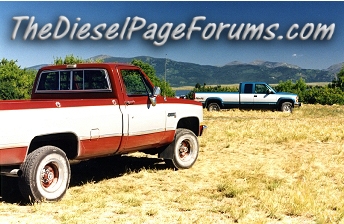

Originally Posted by
More Power

Gasoline has an octane rating, which is a measure of its ability to resist spontaneous ignition. Diesel fuel has a cetane rating, which is a measure of its ability to spontaneously ignite.
Jim
Actually, the octane rating (simplified) is the measure of the speed of the combustion. Normal heptane has an octane rating of 0; iso-octane, 100. Engine "knock" comes from a combination of too-low octane (for the compression ratio) and/or too-advanced timing. "Spontaneous ignition" is called "preignition" (one of the other two causes of "pinging", and is the result of deposits in the combustion chamber that retain enough heat to ignite the fuel-air mixture before the plug fires; it is not considered a characteristic of the fuel. The third source of "pinging", BTW, is "detonation", caused by a too-lean mixture.
Octane is measured by one-cylinder engines, which have a computer controlling parameters; the more relaxed parameters are the Research Octane number. The parameters for the Motor Octane number are more restrictive. Years ago, companies posted only the Research number (since it was higher). The Feds required the current number, which is the average of the two.
Cetane rating (simplified) is based on a mix of cetane and napthalene, and is the time delay from injection to ignition, measured from the start of each event, and like octane rating, measured on an actual, expensive, little engine.
'94 Barth 28' Breakaway M/H ("StaRV II") diesel pusher: Spartan chassis, aluminum birdcage construction. Peninsular/AMG 6.5L TD (230HP), 18:1, Phazer, non-wastgated turbo, hi-pop injectors, 4L80E (Sun Coast TC & rebuild, M-H Pan), Dana 80 (M-H Cover), Fluidampr, EGT, trans temp, boost gage. Honda EV-4010 gaso genset, furnace, roof air, stove, microwave/convection, 2-dr. 3-way reefer. KVH R5SL Satellite. Cruises 2, sleeps 4, carries 6, and parties 8 (parties 12 - tested).
Stand-ins are an '02 Cadillac Escalade AWD 6.0L and an '06 Toyota Sienna Limited.






 Reply With Quote
Reply With Quote
 However, what might work for one diesel engine might not work or could actually damage another. The risk of not knowing what might happen and the high cost or repair usually keep people from experimenting.
However, what might work for one diesel engine might not work or could actually damage another. The risk of not knowing what might happen and the high cost or repair usually keep people from experimenting. 


